February 14, 2020
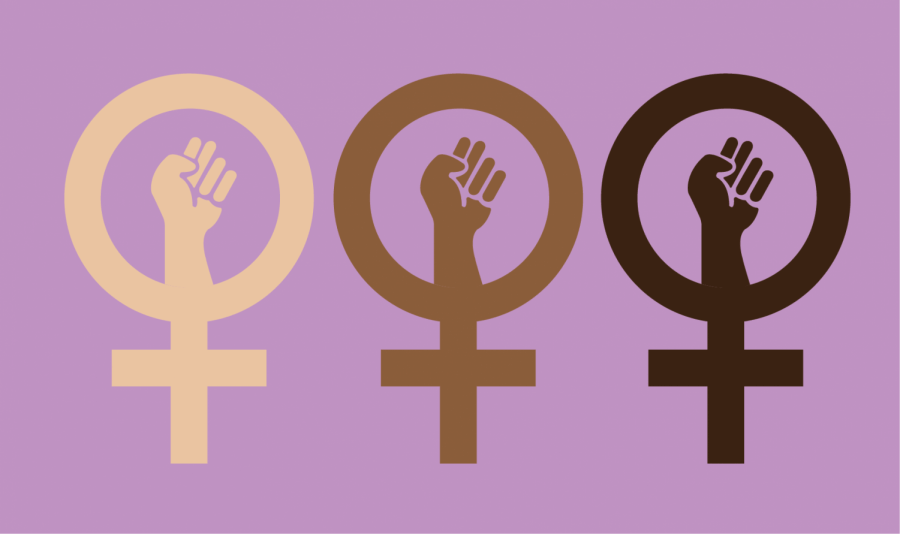
This week, we are highlighting stories of femicide, female genital mutilation, and sexual abuse across five different nations. Due to the nature of these stories, reader discretion is advised

Mexico
The execution of a young female artist is the most recent example of the ongoing war on women in Mexico. Isabel Cabanillas was riding her bike home from a bar when she was shot twice, sparking protests throughout the country. Cabanillas belonged to the feminist group Hijas de su Maquilera Madre. Many of the group’s participants were the first women in their families to attend university, and this “new generation is a new kind of target.” Murals of the artist and feminist art installations have appeared around Cabanillas’s town following her untimely death.
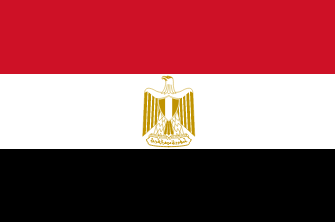
Egypt
There has been renewed outcry against female genital mutilation (FGM) after a botched operation left a 12-year-old girl dead. The doctor who performed the surgery and the parents of the young girl were arrested last week. A doctor-led movement has taken to the streets, protesting the procedure that has been illegal since 2008, but is still widely practiced. Effects of FGM include both mental and physical health issues like “chronic infections, menstrual problems, infertility, [and] pregnancy and childbirth complications.” Egyptian conservatives have defended FGM, stating that “it is a religious thing” and that doctors “only listen to what the West is saying.”

Zimbabwe
In a recent poll, more than 57% of women in Zimbabwe revealed that they have been forced to perform sexual favors for employment or business offers. Women have been subject to this quid-pro-quo for years; one woman stated that “even police officers require some form of payment to help you.” The rise in sextortion is a result of the increased corruption in the nation. The secretive nature of these occurrences result in a lack of prosecution and reports.
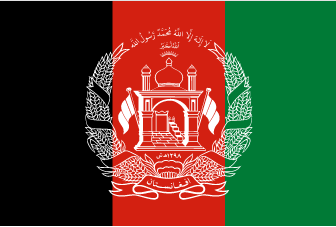
Afghanistan
Human Rights Watch published a report on how perpetrators of sexual assault in Afghanistan are rarely prosecuted. Victims seeking justice are refused recognition. Cases of assault in the athletic world are surfacing, but “Afghan authorities have failed to arrest senior officials of the Afghan Football Federation” and are guilty of “participating in a cover-up of the abuse.” Aghan authorities have provided no legal support to the woman and boys affected and have threatened to punish activists.
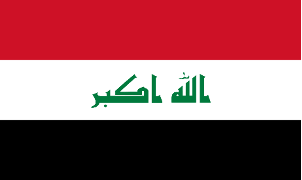
Iraq
This week, SEED, a “local NGO whose core mission is to empower and protect women,” co-sponsored an exhibit calling attention to gender-based violence. Candles were lit at the exhibit to pay respect to the victims of abuse and violence, which runs rampant in the Kurdistan region. In 2019, approximately 120 women lost their lives from gender-based violence. However, only 13 of those deaths were “honor killings,” a major decrease from “previous years, [where] 60-70 women would be killed due to honor.” Sadly, none of the cases made it to court.

China
The World Health Organization (WHO) has given the coronavirus an official name: COVID-19. WHO leaders worked to find a name that “did not refer to a geographical location, an animal, an individual or group of people, and which is also pronounceable and related to the disease.” Experts cannot agree on whether we have surpassed the worst of the virus. China’s top medical expert says that they expect the outbreak to end by April, but global medical professionals are worried that this prediction is too optimistic.
The Latest: China experienced the largest single-day increase in the number of new cases Thursday, with 254 new deaths and 15,152 cases. The sudden spike was the result of a new method of diagnosis that allows doctors to report it on the spot instead of waiting for official lab results to return.
Censorship: Two citizen journalists in Wuhan have disappeared after covering COVID-19. Fang Bin and Chen Qiushi both shared videos on Twitter and Youtube, showing the bleak conditions in a country known for intense media censorship. Neither man can be found, with activists being unsure if they have been taken by the police or put into forced medical quarantine.

Lebanon
Newly appointed Foreign Minister Nassif Hitti has warned that “his country faces becoming a failed state if the population doesn’t accept painful structural economic reforms.” Dr. Hitti responded to anti-government protesters, the newly formed technocratic government is rooting out corruption in an attempt to save the country from its ongoing economic crisis.
Hundreds of people are losing their jobs and losing affordable access to health care. There have been “critical shortages of medicine. Hospitals have stopped performing nonessential surgeries and closed entire wings for lack of patients.” Doctors are opening clinics to provide “free medical care for anti-government protesters injured by security police.”
Public Response: On Tuesday, protesters gathered in an attempt to block the roads leading to the capital so that politicians would not be able to reach Parliament and participate in a vote of confidence regarding the new government. Security forces used tear gas against the protesters, resulting in around 24 injuries. A Lebanese lawmaker was also injured after protesters damaged his car and beat him. Still, the government won the confidence vote.

North Korea
Internet usage in North Korea has increased by around 300%. Doing so has caused major concern in the United States over cybercrimes, such as exploiting data or stealing money from international banks. North Korea has “improved its ability to both steal and ‘mine’ cryptocurrencies, hide its footprints in gaining technology for its nuclear program and cyber operations, and use the internet for day-to-day control of its government.”
Other News: Despite the sanctions placed by the United Nations, North Korea has continued to amplify its nuclear programs as well as illegally export 370 million dollars worth of coal to China. Russia and China have argued that the UN sanctions have harmed North Korea, resulting in the currently suspended nuclear discussions between Pyongyang and Washington. Despite these concerns, France, Britain, and the United States do not believe that this is the opportune time to lift any sanctions.
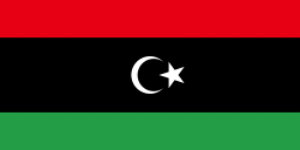
Libya
The United Nations adopted a resolution for the support of ceasefire in Libya, demanding the warring parties commit to “a lasting ceasefire” according to terms agreed by military representatives from both sides at recent talks in Geneva.
Human Rights Watch: The Italian Foreign Minister met with Libya’s Prime Minister and Interior Minister to discuss some changes to the 2017 memorandum on migrants that was automatically renewed on February 2nd. The changes requested by the Italian government concern the formation of the Libyan Coast Guard and the external supervision of the refugee detention centers. The position of the Italian government has been highly criticized by Human Rights Watch: “The Italian government should suspend all support to the Libyan Coast Guard until Libya commits to a clear plan to fully respect migrants’ safety and rights”.
Other News: On Monday, six Libyan families filed lawsuits in the Federal Court of District of Columbia against Khalida Haftar and the United Arab Emirates government for war crimes. The families have asked that they paid one billion dollars in damages; their “relatives were murdered, injured or faced attempting killings.” Filing the lawsuit in the American capital “will bring to light the serious human rights abuses, extrajudicial killings, and torture which the defendants have engaged in with absolute impunity and without fear of accountability.”

Sudan
Sudan has been trying to be removed from the United States’ list of State Sponsors of Terrorism (SST) to get much-needed investment into the country. Their transitional government has taken many steps this week to curry favor with the international community.
The Latest: Leaders agreed to hand over Omar al-Bashir to the International Criminal Court to face charges of genocide and war crimes. Al-Bashir served as the President of Sudan from 1989 until he was ousted in 2019. His charges surround the War in Darfur that broke out in 2003 and has led to the deaths of 300,000. Prime Minister Abdalla Hamdok has also stated that Sudan will be terminating all relations with Hamas and Hezbollah.
Background: Sudan has been on the list since 1993, and there are a number of economic sanctions that come along with being on the list. United Nations chief Antonio Guterres announced that Sudan must be removed from the list and instead given financial support to “save the nation’s fragile and democratic transition from a plunging economy.”

Syria
After eight years of fighting, Syrian President Bashar Assad’s forces regained control over one of the most important pieces of territory: the Damascus-Aleppo highway, or the M5. Once an economic artery for the nation, control over this motorway has largely been seen as the key to winning the conflict. Syrian troops have slowly sought to regain control over it since rebels took it in 2012; this week they gained control of the last section.
Even More Violence: This week saw incredible amounts of violence as both sides sought control over the precious motorway. Turkey started to shell Assad militias in Idlib, rebel forces shot down a Syrian government helicopter, Syrian Defence Forces killed nine Turkish-backed rebels, and a Russian airstrike near Turkish outposts killed and wounded civilians in Aleppo.
Humanitarian Crisis: Over 140,000 Syrians have been displaced in the last three days alone, bringing the total of those uprooted from their homes to over 800,000, the United Nations said Thursday.
Further Reading: The Syrian Network for Human Rights has confirmed that there are still open cases regarding 8,143 missing ISIS detainees, including many activists. While the terrorist organization was supposedly subject to a territorial defeat, the whereabouts and the conditions of the detainees remain unknown.
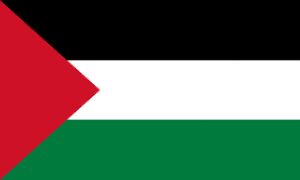
Palestine
At the UN: President Mahmoud Abbas presented a rejection of Trump’s Israel-Palestine deal to the UN Security Council. The rebuttal claimed that the plan “breaches international law and the internationally-endorsed terms of reference for … [a] lasting solution to the Israeli-Palestinian conflict.” The divided Security Council forced the draft to be withdrawn, but not without lively debate and constant disagreements.
International Relations: On Thursday night, Hamas and Israel reached a ceasefire agreement. Hamas ensured that no more balloons or rockets will be launched at Israel, whereas Israel will lift some sanctions in the Gaza Strip.

Iran
In a recent interview, Mohsen Rezaei, a former leader of the Revolutionary Guards and current secretary of the Expediency Council, stated that “Iran is just looking for an excuse to attack Israel and ‘raze Tel Aviv to the ground.’” Raezaei is accusing Israel of being involved in the killing of Qassem Soleimani. He also stated that Iran has access to extremely specific information regarding American troops, where they stay, where they get their supplies, how many American ships currently deployed, and who individual troops considered friends. He credited the bombing of the Ayn Al-Assad base to the collection of specific information. The attack on the American base has resulted in at least 100 injured troops, despite President Trump’s initial statement, where he said that no one was injured.

Venezuela
The conflict between Juan Guiadó and Nicolás Maduro worsened this week as Guiadó returned to Venezuela after seeking international support. Guaidó broke a travel ban by going to Colombia, Europe, Canada, and the US; in many of these countries, he is considered the rightful president of Venezuela.
At the airport, he was met by both protesters and supporters, with many pro-Maduro forces yelling “fascist!” and throwing liquids at him. In response, Maduro made a public appearance and called upon the public to “not get distracted by stupidities, by dummies, [and] by traitors to the homeland.” Maduro has threatened Guiadó before, but he has never been detained.
Meanwhile: Venezuela is experiencing the seventh year of a “crushing depression” and has seen a recent spike in their infant mortality rate, all of which Maduro has denied. He has, however, given foreign firms near-total autonomy over the Venezuelan oil industry. Russian and Chinese oil companies are set to take over an oil industry that has deteriorated significantly as a result of “American sanctions, [and] years of gross mismanagement and corruption.”

Iraq
Tensions between security forces and protesters have continued to worsen. On Monday, crowds gathered near al-Ain University, resulting in the murder of one anti-government protester. In Nasiriyah, southern-Iraq, police fired live bullets and tear gas canisters at the protesters on Wednesday. The demonstrations have taken place over the last five months; at least 500 protesters have been killed by security forces.

Hong Kong
Regina Ip Lau Suk-yee, a member of the Executive and Legislative Council of Hong Kong, has said that the government needs to draft new emergency laws because of the spreading coronavirus. This decision may lead to more violations of human rights. Her decision came after thousands of Hongkongers were seen queuing overnight for masks. Basic supplies like food, toilet paper, and disinfectant are scarce; markets are quickly running out these necessities amidst the panic fueled by the spread of the coronavirus. Supermarkets have been forced to implement a “rationing policy limited customers to two items of the products in short supply.”
The Latest: Beijing has replaced Zhang Xiaoming with Xia Baolong as the director of the Hong Kong and Macau Affairs Office. Baolong is known for the demolition of thousands of Christian churches in 2014. He is also close to China’s President Xi Jinping. By placing Baolong as head of China’s office in Hong Kong, Beijing is further demonstrating its intention to assert more power over Hong Kong.
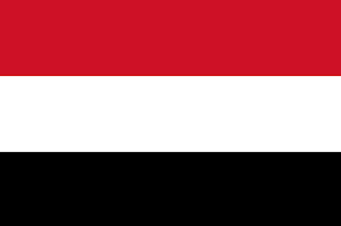
Yemen
Renowned Al Qaeda in the Arabian Peninsula (AQAP) affiliate Qassim al-Rimi has been killed by United States’ forces. An audio recording of al-Rimi has recently surfaced. In it, he stated that he gave orders to a Saudi military officer to attack a United States military base in Florida this past December; the shooting killed three sailors and injured eight others. Having lost a key leader, the group “has been weakened, [but] intelligence and counterterrorism officials warn that the organization remains dangerous.”
The Saudi-led coalition is facing a courts martial against the Yemen strike aircrews, the first case of its kind. Its military personnel is suspected of violating the International Humanitarian Law in 22 cases since the beginning of the conflict, including the targeting of a school, a wedding ceremony, and a civil bus.
Developing News: UN experts have said that the Saudi-led coalition may be responsible for war crimes, including murder, torture, rape, enlisting children under the age of 15 and direct attacks against civilians.

Nicaragua
The Nicaraguan government has finally released newsprint and ink to the country’s best-known daily newspaper, La Prensa. The paper, which has a history of being critical of the Ortega regime, claimed that their supplies were purposely held up in customs as retaliation for their protest coverage. The authorities released the supplies without any explanation or comment, but the newspaper is celebrating. “The newsprint has been liberated!” read the headline on Saturday’s front page.
Other News: Parliament approved four new state-run companies to run the country’s oil and gas industries just two months after the US Treasury Department put extreme regulations on the last corporation, accusing President Daniel Ortega of using it for his own financial benefit. The new company was approved without debate by the Parliament currently controlled by Ortega’s Sandinista party. Opposition leaders are interpreting this move as a way to maneuver around old sanctions and are sure that the new companies will also serve Ortega’s self-interests.
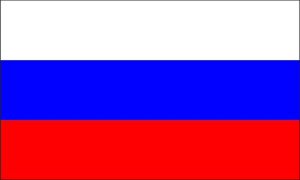
Russia
Human Rights Violations: Russian Court jailed seven anarchists for six to eighteen years on charges of plotting a “terror attack” during the 2018 FIFA World Cup. Human rights organizations accused the government of having made up their accusations, as well as having extracted confessions with the use of torture. Every member of the accused party has denied this conviction.
Russian Court convicted Maxim Vernikov for involvement in an “undesirable” organization. Verinkov was involved in the activities of the Open Russia Civil Movement and the court sentenced him to 300 hours of mandatory labor. Three more activists who are connected with this organization have been prosecuted with similar charges. The Council of Europe’s European Commission for Democracy Through Law (the Venice Commission) accused Russia of violating fundamental human rights through this “undesirable” organization law.

United States
The United States has announced its intention to withdraw troops from 15 bases in Iraq. France, Germany, and Australia are following suit. On Thursday, the Senate voted to “limit President Donald Trump’s authority to launch military operations against Iran.” The vote passed 55-45 as a result of the increased fear of the possibility of starting another war in the Middle East. Trump is expected to veto the bill.
Deportations: Concerns have risen after a report surfaced that the Trump administration is working on a plan to deport thousands of Hmong who fled Laos during the Vietnam war. US Secretary of State Mike Pompeo met with the Lao People’s Democratic Republic and revealed that the administration was negotiating to allow for the deportation of Laos-born people back to their birth country.
Other News: President Trump and his administration have proposed massive budget cuts that would result in halving its funds to the World Health Organization. Lawmakers have deeply criticized the proposed cuts, calling them reckless, especially when the spreading of the coronavirus has shown no signs of slowing down.

Bolivia
Heavy rains have caused massive floods and mudslides in northern and western Bolivia that have left eight dead. Sudden downpours overflowed rivers in La Paz, Santa Cruz, Potosi, Beni, Cochabamba, and Tarija. An estimated 50 homes have been leveled by ensuing mudslides. Residents have complained that emergency services did not respond to their calls for help.
Other news:
Germany: Annegret Kramp-Karrenbauer, Angela Merkel’s would-be successor, decided to withdraw from the leadership of CDU. The decision to step down laid bare the current fragmentation of the conservative party and projected some uncertainty for the future of Germany.
Brazil: A new virus has broken out in Brazil that scientists have never seen before. The new virus, Yaravirus, was discovered in a lagoon. There have yet to be any diagnoses, but scientists have said that “it would be necessary to isolate new viruses similar to Yaravirus to improve [their] analysis and try to define [its] origin.” Thus far, the virus poses no major threat to humans.